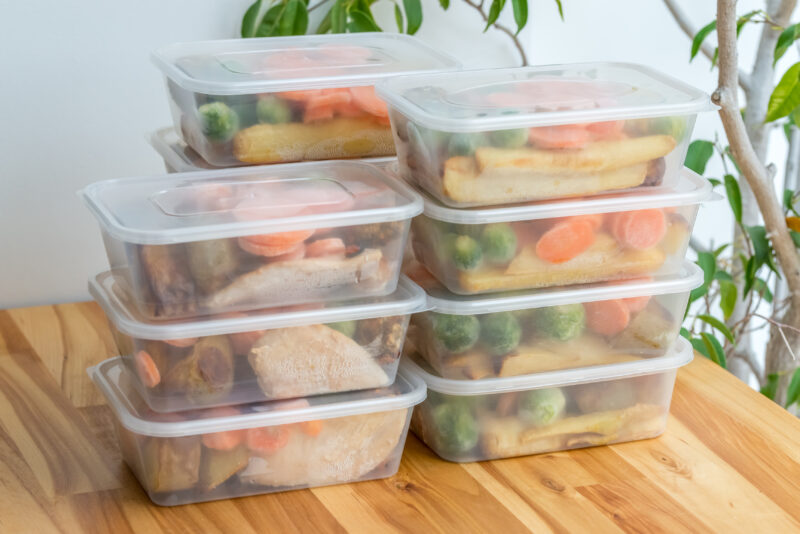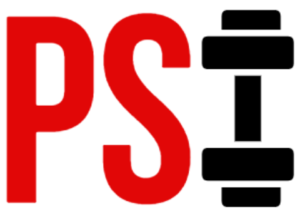I personally have a great deal of experience with intermittent fasting. IF was one of the tools I implemented to lose 80 lbs. It worked great for me… for losing weight / fat.
Today, some people out there suggest that fasting is the best way to go about building muscle.
If you think about it from a logical standpoint, it can’t possibly make sense. After all, we need calories to build new tissue.
But, since the human body is an incredibly complicated piece of biological machinery, could there be some merit to the idea?
Let’s find out.
Is Intermittent Fasting Good For Muscle Growth?
If you spend a bit of time looking up information on intermittent fasting, you’re bound to come across dozens of articles and videos of folks claiming that fasting is the best way to go about muscle gain.
But is it?
Well, intermittent fasting can work for muscle growth. For example, in one study done on women, researchers looked at the effects of resistance training combined with time-restricted feeding (1). All of the women consumed about 1.6 grams of protein per kilo of body weight and had their daily calories between noon and 8 pm.
After eight weeks, researchers found that muscle performance and size increased in all subjects.
Another study done on resistance-trained men also showed results that favor fasting (2). In it, researchers found that fasting, in combination with resistance training, was an excellent way to improve some health markers, decrease fat, and maintain muscle mass.
To date, we haven’t had studies examining the effects of bulking on a regular meal schedule versus a time-restricted one. But, with the research we have so far, it’s fair to assume that intermittent fasting on a bulk might have some limitations.
For example, fasting on a bulk could make it difficult for many people to have their daily calories in. It’s one thing to have 12-14 hours to consume, say, 3500 calories, and it’s a whole other deal to eat the same amount in six to eight hours.
Can you build muscle with intermittent fasting? Absolutely. Is it optimal? No. Intermittent fasting is not the optimal approach for building muscle. In order to build muscle most effectively, one should consume muscle building foods many times throughout the day.

The Role of Meal Frequency for Muscle Gain
For the longest time, we’ve been under the impression that we need to eat more frequently to optimize muscle growth, fat loss, and metabolic rate. Of course, research has shown that meal frequency isn’t nearly as important, especially when it comes to fat loss and metabolism (3, 4, 5).
With that said, it’s also important to note that while meal frequency can’t influence caloric expenditure, it may influence caloric intake. And, since muscle growth tends to occur most optimally at a small caloric surplus, it’s best to stick with a meal frequency that allows you to do just that.
In 2018, Brad Schoenfeld and Alan Aragon came up with an interesting paper (6). In it, the authors looked at protein distribution and its effects on muscle growth. They concluded:
Based on the current evidence, we conclude that to maximize anabolism one should consume protein at a target intake of 0.4 g/kg/meal across a minimum of four meals in order to reach a minimum of 1.6 g/kg/day. Using the upper daily intake of 2.2 g/kg/day reported in the literature spread out over the same four meals would necessitate a maximum of 0.55 g/kg/meal.
In other words, if you currently weigh 80 kilos, your upper daily intake of protein will be somewhere around 176 grams (1 gram per pound of body weight). And to maximize growth, you should aim to get about 32 grams of protein per meal, spread across about four meals.
The bottom line is, research so far seems to favor a higher meal frequency for maximal muscle growth.

How to Go About Eating for Muscle Growth Most Effectively
Here are the four steps you need to take:
1) Consume enough calories.
The most important thing you need to do is get an adequate supply of calories (7). It’s best to start somewhere between 150 and 300 calories above your maintenance level and track the rate of weight gain.
2) Get an adequate amount of protein, carbs, and fats.
We need a combination of all three macronutrients to function correctly. So, once you’ve calculated your caloric target for muscle gain, follow these rules to distribute your macronutrients:
- About 0.8 to 1 gram of protein per pound of body weight;
- Between 0.2 and 0.6 grams of fats per pound of body weight;
- Get your remaining calories from carbs;
3) Have about four to five meals per day, each having some protein.
As we saw in the Schoenfeld-Aragon paper from above, it appears that having four to five protein-rich meals per day is optimal (6).
4) A pre-workout meal consisting of some protein and carbs.
Having a pre-workout meal consisting of some carbs and protein is a great way to ensure excellent performance and reduced muscle protein breakdown.
Alternatively, if you can’t have a pre-workout meal within about two hours of training, you should have a post-training meal to kickstart the recovery process and prevent muscle loss (7).
Are There Any Exceptions to This?
You might be wondering:
“Well, I feel better when I fast, and it allows me to be more productive. Can’t I do it while building muscle?”
Sure, you can. Nothing is to say that you have to follow a typical meal frequency, but try to get at least three square meals within your eating window.
Another exception here are folks who tend to feel quite hungry even on a bulk and tend to overeat. By restricting your feeding window, you might find it easier to avoid overeating and gaining too much fat.
Thank you for reading. If you liked this article, please share it and then………. go Pump Some Iron!
Follow me / Pump Some Iron on Instagram for updates @pump.some.iron

